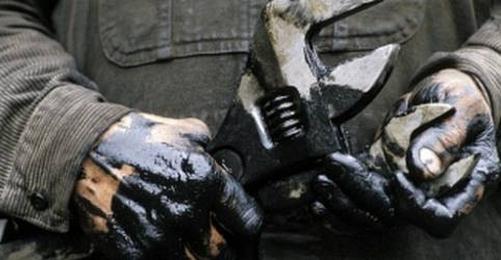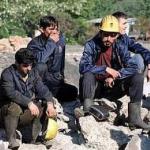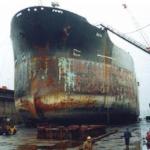Work Safety? - Too Expensive...

A report issued by the Istanbul Assembly for Occupational Health and Work Safety revealed that 396 workers died in accidents at work and 2,453 were injured during the first nine months of 2011.
In its monthly reports the assembly keeps track of accidents at work and their results considering various sectors of industry. According to their latest release, most of the accidents as of January 2011 occurred in September. Data compiled by the assembly suggests that 56 workers died in accidents at work in September only and 686 were injured at work.
As reported by the Dicle News Agency (DİHA), occupational accidents occurred most frequently in industrial centres such as Istanbul, Kocaeli, Zonguldak, Izmir, Ankara, Adana, Eskişehir, Tekirdağ, Malatya, Bursa, Konya and Maraş. There, the majority of accidents happened at shipyards, in mines, at construction sites, and in the fields of energy, metal, cement, seasonal agriculture, textiles and leather industry.
Death and injury was caused by falling from heights, contusion, poisoning, burns or traffic accidents as they frequently happen at seasonal agricultural work. In this context the report drew special attention to the fact that workers were employed under heavy and inappropriate conditions.
"Companies and government neglect security at work"
Academic Berna Güler Müftüoğlu, member of the Istanbul Assembly for Occupational Health and Work Safety, pointed out that employers did not care about security at work in order to minimize costs based on the competitive market system. Flexible employment, the attempt to have a high work load done by a small number of workers and long working hours result in occupational accidents that cause death and injury, Müftüoğlu noted. "The companies and the government are facing competition as part of the market system. Therefore, they do not take any measures regarding security at work in order to minimize the cost", she explained.
Müftüoğlu emphasized that trade unions should create awareness for the problems of work life and that a struggle had to be led for occupational health and work safety.
She warned that passiveness would otherwise pave the way to losing the rights that were already gained. "If one fails to establish a strong mechanism of pressure in this issue, there will be nothing left to call 'social rights'", Müftüoğlu argued. (EKN/VK)






